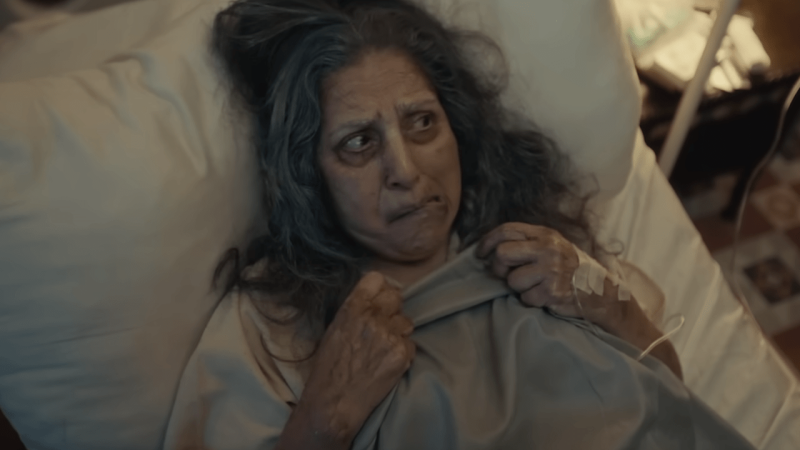‘Strong women are abused too’: Mawra Hocane on Jafaa sparking a conversation about domestic violence
Mawra Hocane revealed that people she’s known, as well as people from the entertainment industry, reached out to her after she played Dr Zara, a survivor of domestic abuse, in her latest drama Jafaa.
In a recent appearance on Something Haute’s podcast, the actor said powerful women, who people assumed no one could talk back to, disclosed that they had faced domestic abuse, both physical and emotional, at the hands of their spouses.
“It was important to show that, being a doctor and being financially stable may aid in your recovery process and your quality of life is affected, but it’s not like strong, sufficient women aren’t abused or that they can’t be like Dr Zara.”
Hocane continued that the women who shared their stories with her believed she could feel their pain and that the show was relatable, which was a “very big achievement” for her.
“The writer, director, makers and I agreed that the first time there is physical abuse there has to be a reaction because you cannot brush physical abuse under the carpet […] it’s always grave, even a touch, even a slap,” she said about the first instance of abuse Dr Zara faced which led her to temporarily leave her husband, Hasan (played by Mohib Mirza).
The host questioned if a reaction was necessary even if the instance of abuse was unintentional, to which Hocane responded in the affirmative.
“You never unintentionally hit your boss or your parents. Why is it that you’re unintentionally — which is advocated a lot in our communities — hitting your wife? Because somewhere in your mind you think you can, and they should be told you can’t.”
Commenting on the toll the performance took on her, the actor said it was very painful for her to even momentarily imagine herself in a situation where she was rendered completely powerless.
She added that during some shoots, she would want to add a more intense reaction to the portrayed abuse, however, director Danish Nawaz explained that Dr Zara’s story was one of every household.
“We would get feedback that ‘if Hasan is like this, why doesn’t Dr Zara leave him?’. Because the women who reached out to me haven’t left their husbands. Because it’s very painful for women to leave, and I’m sure it’s also painful for men to have their homes broken, but in this situation, I’m speaking of when men are abusive.
“It’s very hard for women to walk away and I think it was important to understand that difficult.”
She maintained that leaving one’s spouse was a gradual process, and although the makers could’ve shown her leaving at the first instance of abuse and given the message of walking away at the first incident, the feat was easier said than done.
“We see so many cases all around us and after playing Dr Zara I realised even more, with the amount of women who reached out to me, that this is happening in every household.”
Hocane detailed that one of her childhood friends opened up to her only after her role in Jafaa because she felt the actor understood her narrative better.
“It’s very hard for women to open up about this and to shame their husbands in front of their friends. And they haven’t left their husbands, which makes it harder for them to insult the person they live with and have a child with.”
She maintained that actors and show-makers work on such projects to remove the shame from these issues, to help people open up to their parents and friends, and to leave the situation when they can.
Hocane maintained that she agreed to work in Jafaa because of the show’s message, and because the people watching her — especially younger girls — were influenced by not just who she was but also by her characters.
“I realised my responsibility.”











Comments